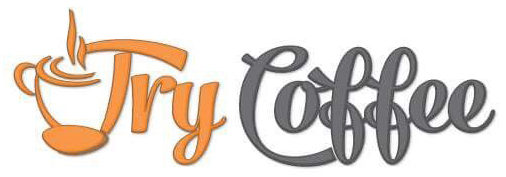Table of Contents
Every time you’re looking for decaf coffee, one of the first things on your mind is probably how much caffeine content this beverage has. You might be interested in dark roast decaf or some other kind of decaf coffee with unique flavorings added to it. Or maybe you just want some advice on which type of decaf is using the best decaffeinating process.
Well, you’ve come to the right place! First, let’s take a look at some decaf coffee facts. Then, we’ll explain the different types of decaf coffee, what dark roast decaf even is, and give you some essential advice on how decaffeination processes work.
Many decaf coffee drinkers choose decaf with very low caffeine content. And we have seen how decaf coffee with the lowest caffeine level can help you lead a healthier lifestyle by providing you decaffeinated beverages without sacrificing taste. And, of course, we’ll also show you which type of decaf coffee you should choose if you are looking for decaffeinated (caffeine-free) coffee.
Which Coffee Has the Least Caffeine?
If you are worried about your caffeine intake, decaf coffee might be the right choice for you. However, decaffeinated coffee is not entirely caffeine-free. The decaf process does remove most of the caffeine from your beans; however, low caffeine coffee is not decaffeinated to a 0% level.
Decaffeination Process
There’s caffeine in decaf coffee as well as regular coffee because roasted coffee beans, which you need to make decaf, have a significant amount of caffeine naturally present. However, a decaf process can remove up to 97% caffeine content from coffee beans, leaving you with decaf coffee. However, there might be a taste difference between regular coffee and decaf coffee.
Decaffeinated coffee is decaffeinated to various degrees. The decaf process removes caffeine from your beans by soaking them in water or oil or using carbon dioxide. There are 4 decaf processes:
- ethyl acetate
- CO2 decaffeination
- methylene chloride
- Swiss water decaffeination
The decaf process with ethyl acetate is the most common decaf method coffee manufacturers use. Ethyl acetate is an organic compound that smells like pear or apple, and it usually comes from fruits, yogurt, vinegar, and other foods. It has low toxicity but if you would like to avoid it during the coffee decaffeination process, choose decaf coffee that is decaffeinated by carbon dioxide.
According to Seattle Coffee Gear: “The Swiss Water Process, which uses only water and osmosis to decaffeinate the beans, claims a caffeine level of about 0.1% – considerably lower than the average decaf coffee.” It decaffeinates coffee in a single step using only water and osmosis.
A decaf process can decaffeinate your beans to anywhere from 0.1% up to 4%, which means you never truly know how much caffeine is left in your decaf coffee. So if you are worried about the caffeine content in decaf coffee, dark roast might be a better choice for you. Because dark roast is decaffeinated using the Swiss Water Process.
How Can I Drink Coffee with Less Caffeine?
You can drink decaf coffee with less caffeine by trying decaf dark roast beans. This decaffeinated dark roast has a lower caffeine content than other decaffeinated coffees. Not only do you get more caffeine in regular roast, but these beans are also roasted longer for fuller flavor and aroma. Yum!
Decaf French Roast
If decaf is your choice, but the dark roast is too bold for you, French roast might be the right decaffeinated coffee for you. The decaf process with ethyl acetate used on these beans makes the beans more porous so that it takes on flavors more intensely during the French roast process.
Does Dark Roast Coffee Have Less Caffeine?
No, decaf dark roast coffee has more caffeine than light roast coffee.
According to Dr. Axe:
“Dark roasts actually contain more caffeine than lighter roasts because the roasting process releases and enhances the natural caffeine content of coffee beans.”
However, if you decaffeinate dark roast with ethyl acetate or carbon dioxide method, then it decaffeinates the beans more than decaf light roast.
According to Decaf.org,
Decaffeinated dark roast coffee contains 10mg caffeine per fluid ounce. However, decaffeinated light roast coffee has 8mg caffeine per fluid ounce. If you are looking for a decaf dark roast that is mild in flavor, decaf French roast coffee might be a better choice for you.
How Much Caffeine Content Is in Caffeinated & Decaffeinated Coffee?
According to Seattle Coffee Gear, decaf coffee has about 0.1% caffeine content. On the other hand, decaf dark roast coffee contains 10mg caffeine per fluid ounce which is 10 times more caffeine than light roast decaffeinated. As for normal roast, it can range from 2% up to 5% caffeine content.
Related Contents:
- Difference Between Coffee and Tea?
- Difference Between Coffee and Latte?
- What Should Coffee Taste Like?
How Much Caffeine Is Safe to Drink?
There is no established limit for caffeine intake each day. However, if you are worried about the amount of caffeine content in your drip coffee or cold brew, then check per fluid ounce. For example, one-half cup of decaf dark roast coffee contains 5mg caffeine, while one-half cup light roast decaffeinated has 2.5mg caffeine.
Decaf Light Roast Coffee Vs Decaf Dark Roast Coffee
1) Decaf coffee has only about 1% caffeine content.
2) Normal coffee content can range from 2% up to 5%.
3) Dark roast coffee beans contain more caffeine content than light roast coffee.
4) Decaf dark roast coffee is decaffeinated with ethyl acetate or carbon dioxide method, which decaffeinates the beans more than decaf light roast method.
5) Decaf dark coffee has a stronger flavor than decaf light roast coffee.
6) Decaf dark roast coffee might not be a better choice for you if you are looking for a decaf that is mild in flavor.
7) Decaf dark roast coffee can produce a caffeine allergy.
8) Decaf light roast is easier to find in grocery stores and at gas stations. But you might need to visit a specialty store for decaf dark roast coffee.
So, according to health experts, we should drink caffeine in coffee beverages because it is a stimulant that fights against many diseases. In addition, there are studies that show caffeine can help with alertness and memory improvement. But, on the other hand, excessive caffeine intake is not good for our health.

